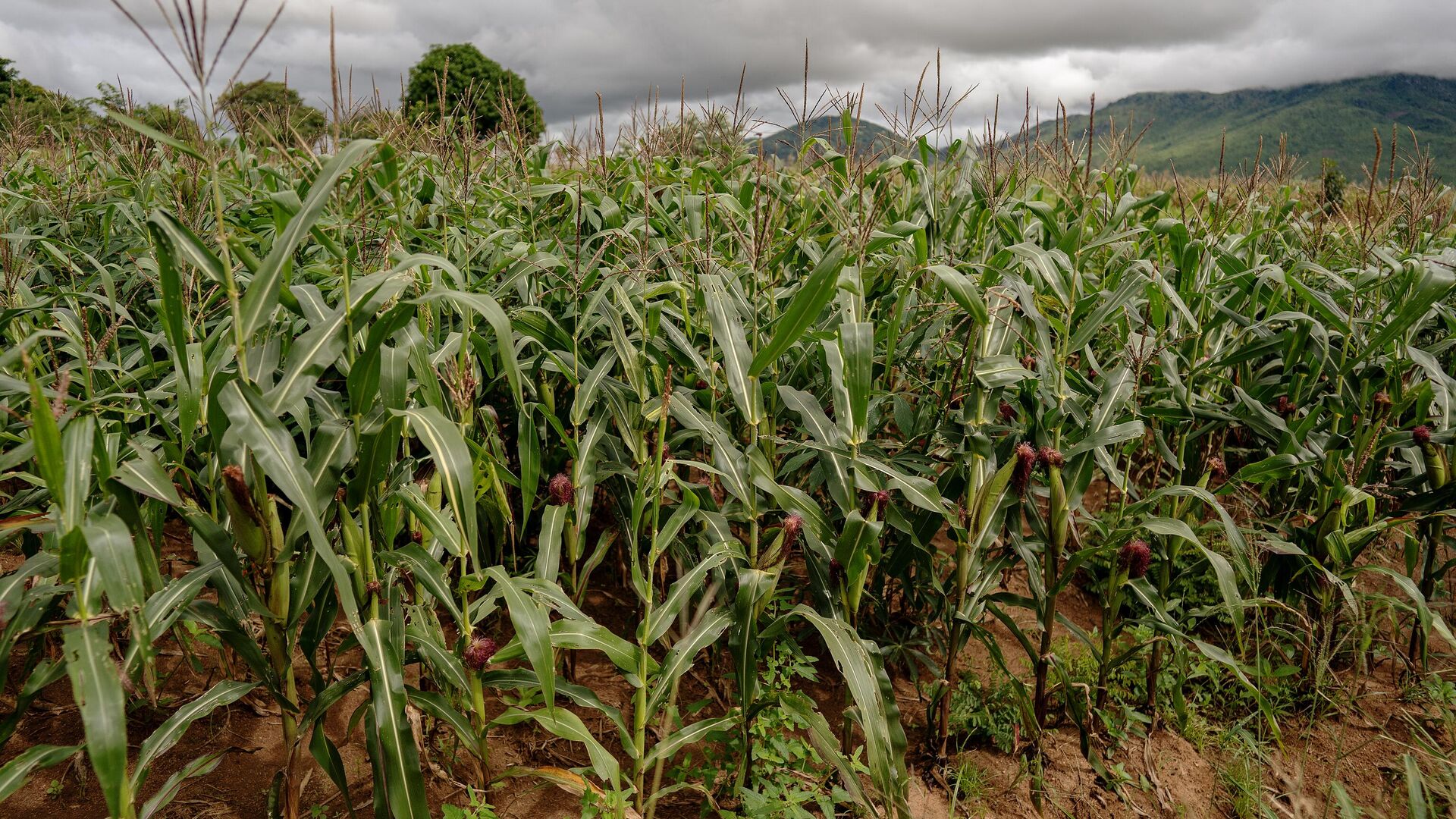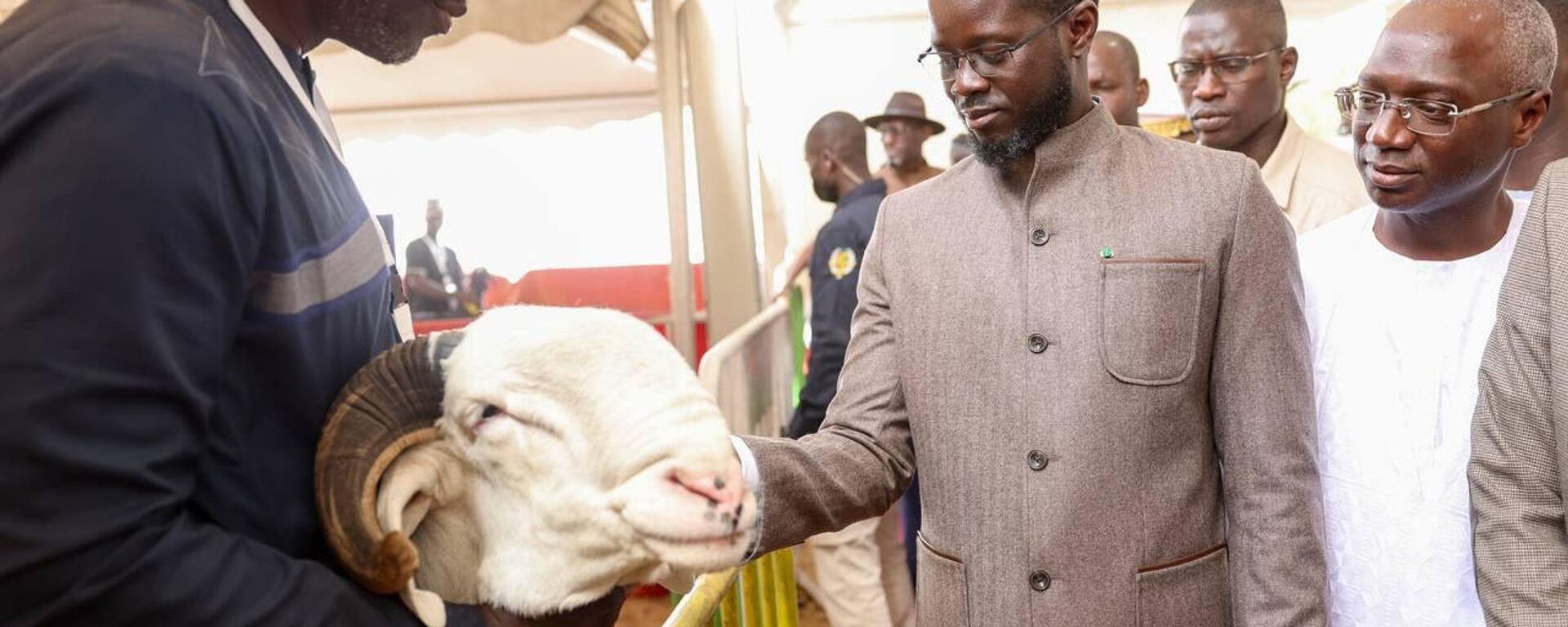https://en.sputniknews.africa/20250224/zimbabwe-sidesteps-food-crisis-amid-drought-through-joint-efforts-media-reports-1070804674.html
Zimbabwe Sidesteps Food Crisis Amid Drought Through Joint Efforts, Media Reports
Zimbabwe Sidesteps Food Crisis Amid Drought Through Joint Efforts, Media Reports
Sputnik Africa
In the summer of 2024, a record drought linked to the El Niño weather phenomenon entered its worst stage. This drought devastated crops across Southern Africa... 24.02.2025, Sputnik Africa
2025-02-24T10:56+0100
2025-02-24T10:56+0100
2025-02-24T10:56+0100
sub-saharan africa
zimbabwe
economy
southern africa
food
food security
el nino
drought
government
farmers
https://cdn1.img.sputniknews.africa/img/07e9/02/18/1070804499_0:160:3072:1888_1920x0_80_0_0_5ae4bc9f5b52d47fcb1a89ef1b9fa42c.jpg
Despite a severe El Nino drought last year, Zimbabwe successfully avoided food shortages and market manipulation through joint government and private sector efforts, according to the media.Facing a poor maize harvest, the Zimbabwean government secured supplies for food relief using Grain Marketing Board (GMB) reserves, while private millers imported maize. From April to February, the private sector imported 1.35 million tonnes of grain, including 1.13 million tonnes of maize, according to Information Minister Jenfan Muswere.The GMB also maintained sufficient reserves for ongoing government programs. The government monitored import volumes and prices to prevent price gouging. With a focus on maintaining consistent supply, shops continued to stock all brands of mealie-meal.Before the planting season, farmers received adequate inputs to boost the maize harvest from 744,000 tonnes to a target of 3.2 million tonnes, with preliminary data indicating 99% of the target area was planted, raising hopes for a bountiful harvest.
https://en.sputniknews.africa/20250223/senegal-pledges-to-boost-livestock-sector-for-food-sovereignty-1070793032.html
zimbabwe
southern africa
Sputnik Africa
feedback@sputniknews.com
+74956456601
MIA „Rossiya Segodnya“
2025
News
en_EN
Sputnik Africa
feedback@sputniknews.com
+74956456601
MIA „Rossiya Segodnya“
Sputnik Africa
feedback@sputniknews.com
+74956456601
MIA „Rossiya Segodnya“
zimbabwe, economy, southern africa, food, food security , el nino, drought, government, farmers, grain, agriculture
zimbabwe, economy, southern africa, food, food security , el nino, drought, government, farmers, grain, agriculture
Zimbabwe Sidesteps Food Crisis Amid Drought Through Joint Efforts, Media Reports
Ekaterina Shilova
Writer / Editor
In the summer of 2024, a record drought linked to the El Niño weather phenomenon entered its worst stage. This drought devastated crops across Southern Africa, causing millions of people to go hungry and forcing five countries to declare national disasters.
Despite a severe El Nino drought last year,
Zimbabwe successfully avoided food shortages and market manipulation through joint government and private sector efforts, according to the media.
Facing a poor maize harvest, the Zimbabwean government secured supplies for
food relief using Grain Marketing Board (GMB) reserves, while private millers imported maize. From April to February, the private sector imported 1.35 million tonnes of grain, including 1.13 million tonnes of maize, according to Information Minister Jenfan Muswere.
The GMB also maintained sufficient reserves for ongoing government programs. The government monitored import volumes and prices to prevent price gouging. With a focus on maintaining consistent supply, shops continued to stock all brands of mealie-meal.
Before the planting season,
farmers received adequate inputs to boost the maize harvest from 744,000 tonnes to a target of 3.2 million tonnes, with preliminary data indicating 99% of the target area was planted, raising hopes for a bountiful harvest.


